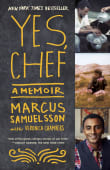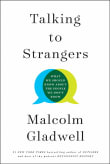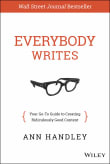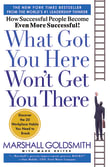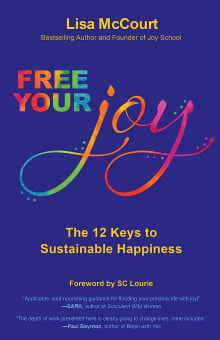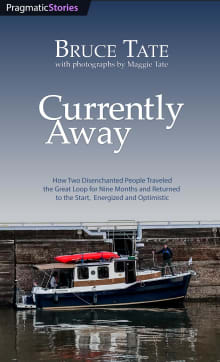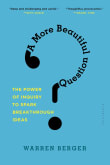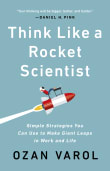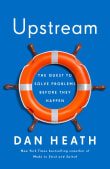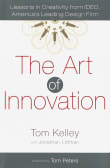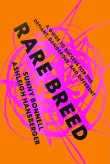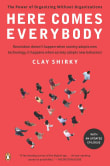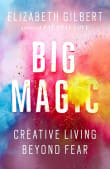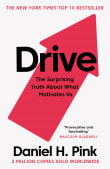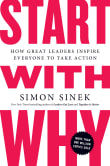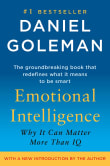Range
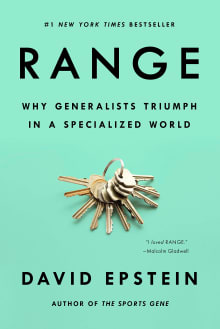
Book description
'Fascinating . . . If you're a generalist who has ever felt overshadowed by your specialist colleagues, this book is for you' - Bill Gates
The instant Sunday Times Top Ten and New York Times bestseller
Shortlisted for the Financial Times/McKinsey Business Book of the Year Award
A Financial Times…
Why read it?
8 authors picked Range as one of their favorite books. Why do they recommend it?

This was another one where people from every angle had been recommending it for years... yet I resisted, thinking it didn't sound all that amazing, and I basically knew what it would be about without any need to even read it. But I finally caved in and have to admit I was totally wrong.
This was a highly engaging and informative book. Lately, I've been less into dry scientific texts and more into something closer to essays, where the author does bring some knowledge to the table but more personality as well. And this definitely fits the bill.
Many are…

The rule of 10,000 hours is well known: If you want to excel at something, spend an inordinate amount of time practicing and honing your skills. This book conveys the opposite message. It shows how breadth in interests, intuition, and general curiosity can produce new insights and innovation.
Drawing on a range of examples from sport to science, the author certainly convinced me (who can perhaps identify more easily with the message than many).
After reading this, you'll never speak disparagingly about amateurs again.

I love this book for its idea and evidence that generalists, and not specialists, are often the most successful.
With examples of how those who cross domains are the most impactful inventors, it gives great hope for those broad thinkers who explore diverse experiences and careers to develop skills. It’s validation for those who haven’t quite figured out what they want to be when they grow up, with the idea that “frequent quitters end up with the most fulfilling careers.”
A must-read for job seekers and for human resources professionals.
From Angela's list on accelerating your career.
If you love Range...

David Epstein examined the world’s most successful athletes, artists, musicians, inventors, forecasters, and scientists.
He found that being a generalist (having a range of interests) rather than a specialist (having a narrow scope of interest) leads to better performance. I loved the book because he gave many exciting examples of performers in different fields to show how depth of knowledge leads to more curiosity, creativity, and agility.
Sometimes it can be challenging to tie in the importance of curiosity, but Epstein gives wonderful examples of human success.
Furthermore, it helps us learn that the broader our range of interests, the…
From Diane's list on building curiosity and get out of status-quo at work.

I like to consider myself a generalist, in many ways, so I’d be lying if I said this book didn’t give me lots of warm-fuzzies. (It’s always good to get scientific validation that your approach to things is a good one.) The most creative people I know are those that have combined multiple careers, interests, or pursuits to arrive at their groundbreaking ideas, so this book is a must-read to grant yourself permission to explore the “unrelated” in your quest for the new.
From Melanie's list on to make your marketing more creative.

Find something you want to do. Go deep into it. Stay hired forever. Great advice? Maybe for much of the Industrial and Information Age. But in the impending Imagination Age this advice isn't good. And Epstein explains why. If you can't see how things interconnect, you can't figure out how they play off one another and work in new and unique ways. This is for all of the generalists and Renaissance folks who have been told their whole lives, "Jack/Jill of all trades and master of none will just leave you in the unemployment line." Not true and we need…
From Geoffrey's list on disruptive marketers in the 21st century.
If you love David Epstein...

If you want to compete at the highest level, shouldn't you commit yourself to a single sport, subject, or musical instrument? Isn't it essential to study hard, practice relentlessly, and use self-discipline to stay on track? "Winners never quit and quitters never win," right?
If you believe these maxims, you should read Range. While acknowledging the value of specialization and applauding self-discipline, David Epstein offers a compelling argument for the value of breadth, curiosity, and agility. Citing scientific evidence, he notes that over-specialization can produce tunnel vision and thus limit our ability to make connections, side projects can lead…
From Mary's list on for cultivating creativity.

I love this book! It is a great book to share with individuals who might not be fully on board with the advantages of diversity and inclusion. David shows how generalists, not specialists, are more creative and agile with numerous examples from the sports world. And, how this is a trend in society as a whole. The stories are super accessible and it is an easy read.
From Frans' list on diversity creates amazing teams and societies.
Want books like Range?
Our community of 12,000+ authors has personally recommended 92 books like Range.



